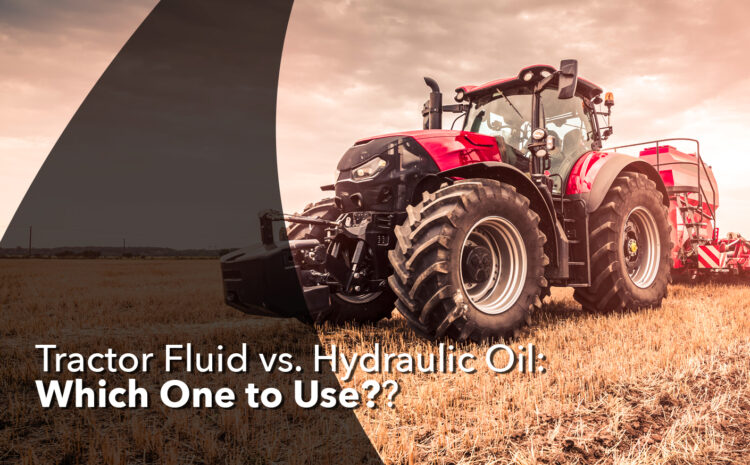
Tractor Fluid vs. Hydraulic Oil: Which One to Use?
Why tractors and farm machinery require different lubricants for optimal performance?
Tractor fluids and hydraulic oils have different formulations and functions. Tractor fluids are specialized lubricants designed to protect key components, particularly tractor transmissions, and to meet the demands of agricultural use, such as low speeds and high torque. Tractors operate under diverse and harsh conditions, including extreme temperatures and dusty or wet environments.
On the other hand, Hydraulic oil is primarily used to transfer power within hydraulic systems, manage heat, and protect components through lubrication, which prevents wear and damage. Additionally, hydraulic oils help eliminate contaminants and resist water emulsion by separating quickly. Each type of fluid is tailored for different components in tractors and heavy-duty machinery.
Selecting the correct fluid or oil is essential for optimal equipment performance. Using the wrong product can lead to significant damage to your tractor’s or machinery’s hydraulic system and components.
Proper lubrication is crucial to prevent corrosion, reduce wear, and maintain efficiency. Choosing the right hydraulic fluid is essential for optimal performance. Key considerations include consulting the owner’s manual and noting the tractor’s age. Tractors built before 1974 use one type of hydraulic fluid, while those manufactured in 1974 or later require a different type.
Our U1P-Duty Agricultural sub-category includes the following multi-purpose tractor fluids:
- SAE 10W, 30, and 50 Transmission Drivetrain Torque Fluid, TO-4
- Premium 1000 Univ. Tractor HF (P, D, T)
These fluids feature high-quality base oils and a blend of additives, providing lubrication for moving parts in differentials with wet brake systems, transmissions, gears, and hydraulic systems. While versatile, they are not suitable for engine use. In addition to tractors, these lubricants are also compatible with earthmovers, forklifts, combines, mowers, balers, and plows.
Always ensure that your product recommendations align with your equipment manufacturer’s specifications and adhere to the recommended service intervals for your vehicle.